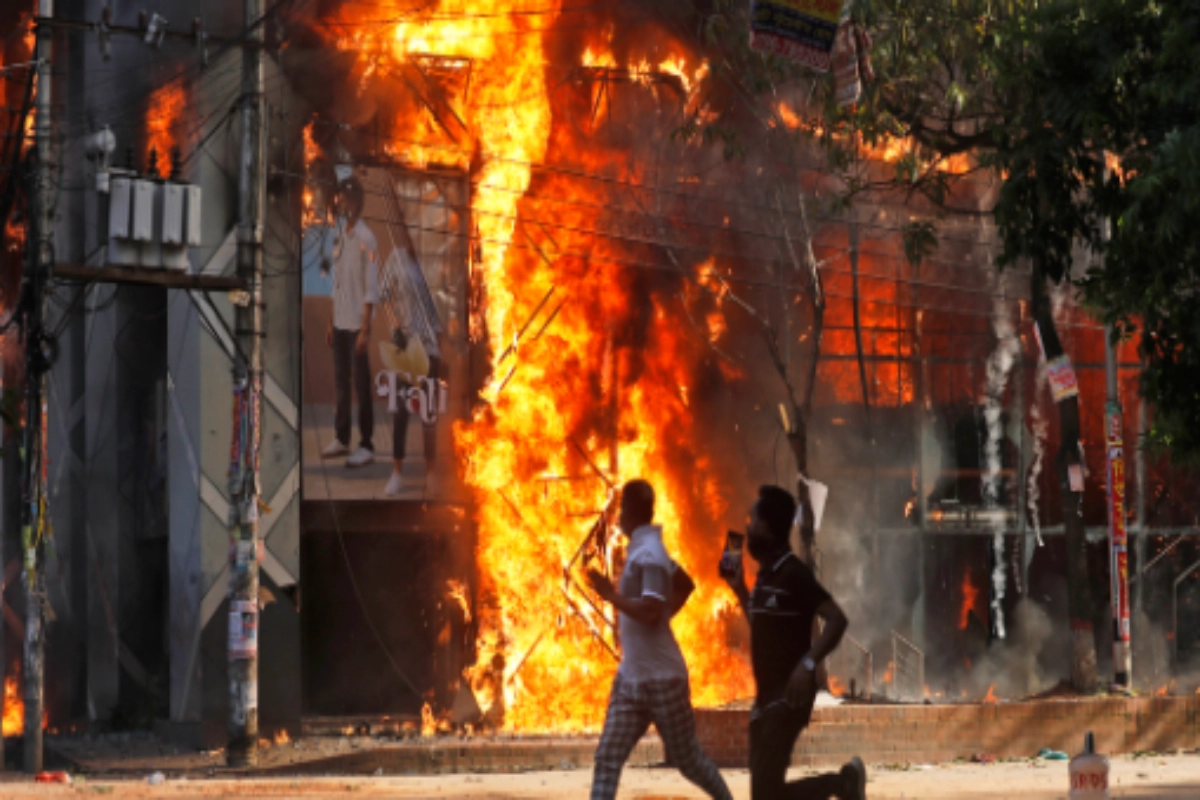Bangladesh Protests: A fresh round of violence hit Bangladesh and its capital city, Dhaka, on Sunday. Over 97 people have been killed, leaving hundreds others injured. The violent clash started with students’ protests against the police and ruling party men, who were demanding the resignation of Prime Minister Sheikh Hasina. Soon after that, tens of thousands of demonstrators were dispersed by police firing tear gas and using rubber bullets along with stun grenades.
Nationwide Curfew and Restrictions Imposed
In response, the Bangladeshi officialdom declared an undefined countrywide curfew from 6 pm and a three-day holiday. This is the first time in any deterioration of the situation where public agitation began last month and led the government to adopt stringent measures. It also called for strict security measures, including the shutting off of high-speed internet services to curb the spread of information and hence mobilization.
The protests present a significant new challenge for Prime Minister Hasina, who has held power for over 15 years. Agitating students and oppositions are calling for her to step down, saying they are fed up with the government on various issues, including a controversial quota system for the government jobs. Though the Supreme Court reduced the quota from 30% to 5%, making room for 3% of the seats to be reserved for families of veterans, protests continue, fueled by demands for accountability and justice.
Indian Government Issues Travel Advisory Amidst Bangladesh Unrest
Travel advisory issued by the Indian government to its nationals to discourage all travel to Bangladesh and asking those currently in the country to be extremely cautious. The Ministry of External Affairs made similar recommendations for Indian citizens to restrict movements and stay in touch with the High Commission of India, Dhaka.
Widespread Violence Across Bangladesh Amidst Ongoing Protests
The violence has now been reported across multiple cities and towns beyond Dhaka. Demonstrators have attacked offices and hospitals and engaged the police. In Dhaka’s Uttara area, too, there are accounts of bomb explosions and gunshots. The government action towards the putdown has drawn flak from several sectors, including former military officials who have extended their solidarity with the demonstrators.
The Bangladesh Army has also stayed neutral in the matter and has spoken in one voice with the people, but it did not get directly involved in the incident. Army chief Waker-uz-Zaman gave assurance to the people that the Army is with the people and the state. The fact that it has been going on has shown not only the deep-rooted problems related to the political and social fabric of the country but also the rising anger and difficulty of the government in creating order and redressing grievances.


